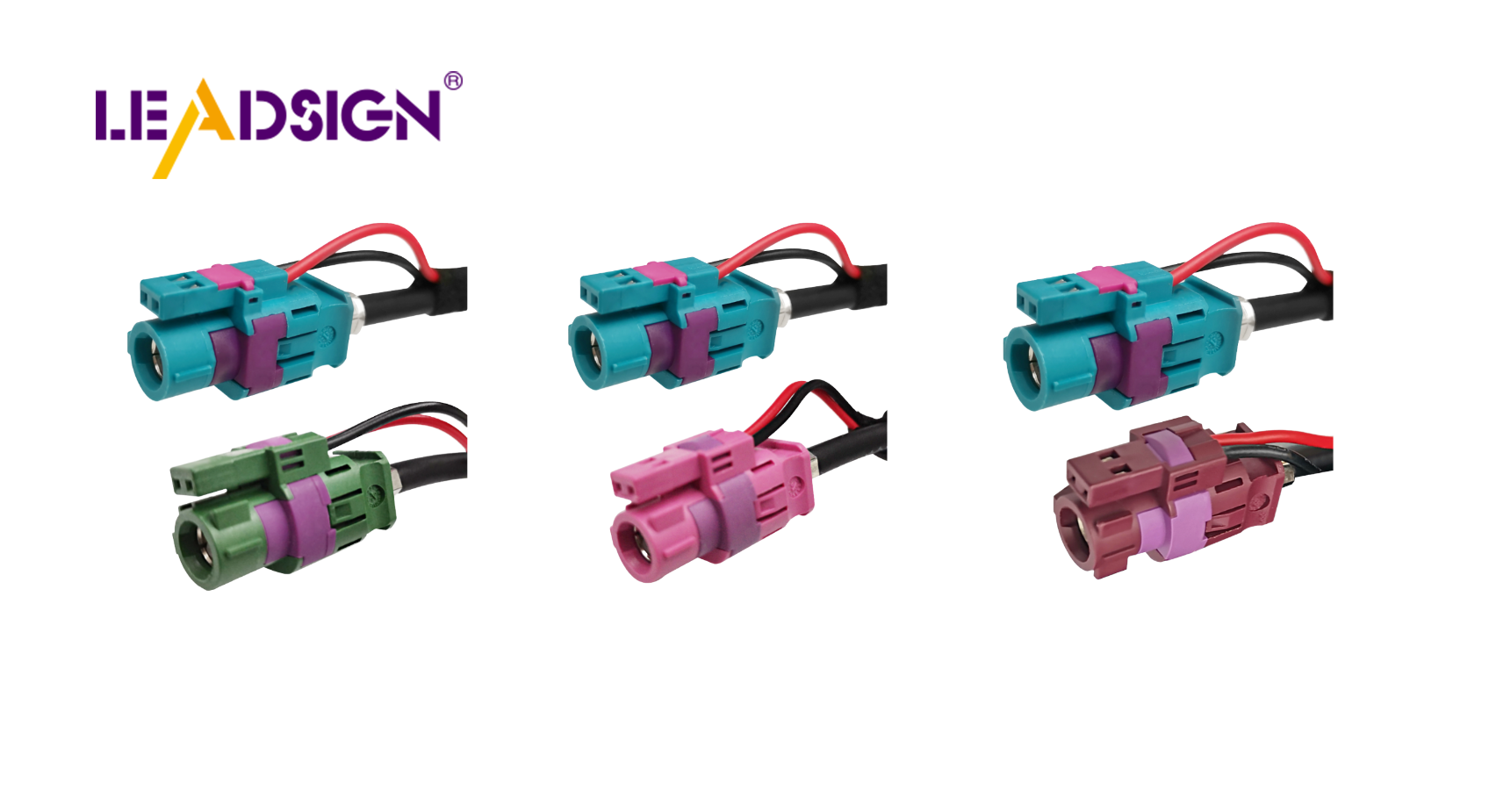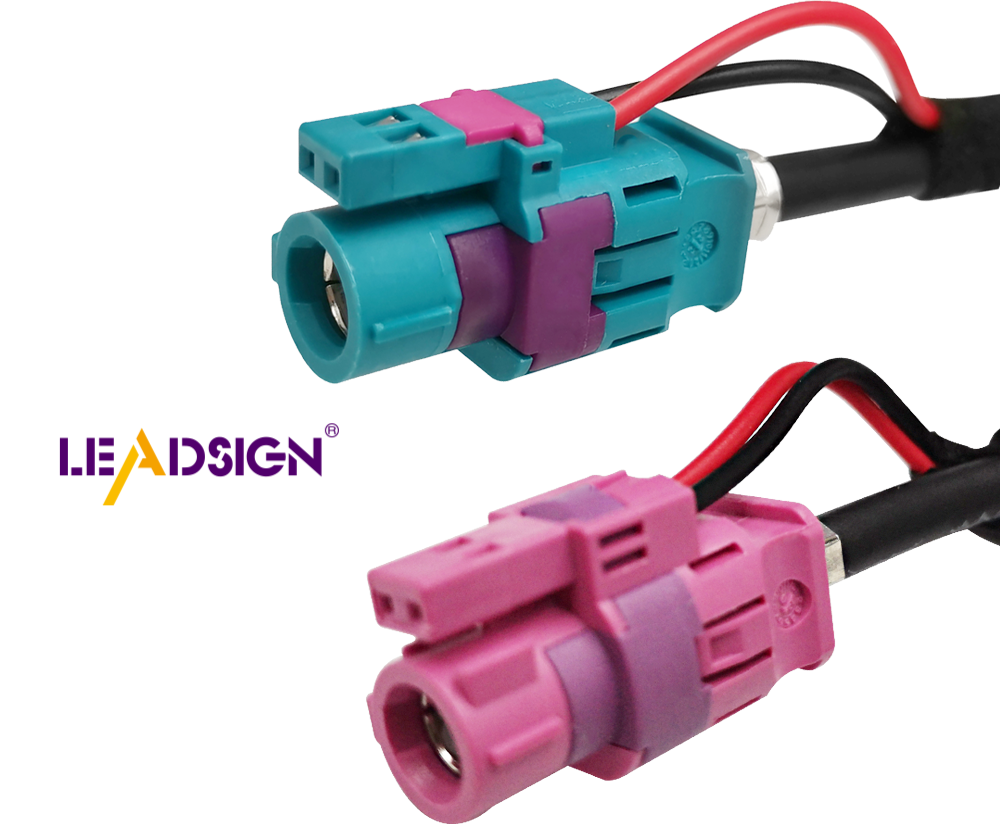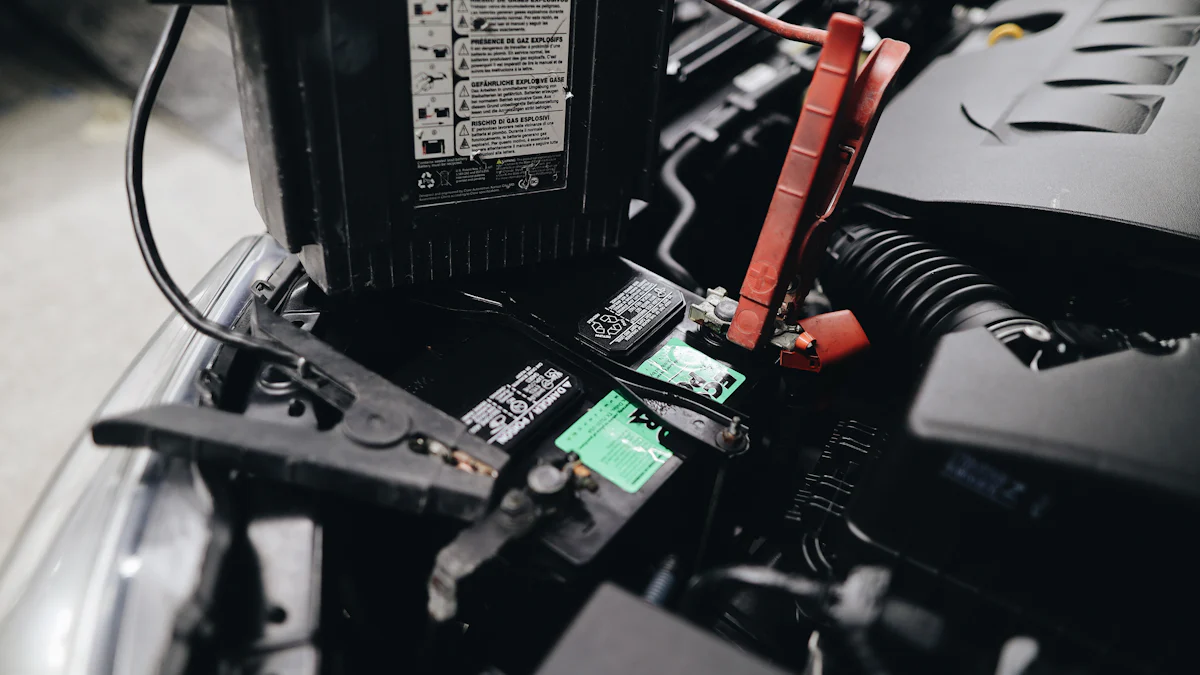Which car wiring wire is right for you?

Picking the right car wiring wire is very important. The Painless Wiring Chassis Harness, Speedway Motors 22-Circuit Universal Wiring Harness, and JEGS Universal Wiring Harness are great options. They are easy to install with labeled wires and connectors. These wires are strong and last a long time. They work well in tough conditions too. They fit many vehicles and allow custom changes. Whether fixing an old car or improving a new one, these harnesses give you the performance and flexibility you want.
Key Takeaways
Choose a wiring harness that matches your vehicle's make and model for optimal compatibility and easier installation.
Look for thicker wires in the harness to ensure safety and performance, as they can carry more power and reduce overheating risks.
Select a harness with pre-labeled wires and clear instructions to simplify the installation process, especially for beginners.
Prioritize durability by choosing harnesses with strong insulation and abrasion resistance to protect against heat, moisture, and wear.
Consider your project type and skill level when selecting a harness; some are better suited for complex builds while others are ideal for simple upgrades.
Always test the wiring system after installation to ensure all connections are secure and functioning properly, preventing future issues.
Regularly inspect your wiring harness for damage or wear to maintain your car's safety and performance over time.
What to Look for in a Wiring Harness

Picking the right wiring harness helps your car work well. It connects important parts, powers systems, and boosts performance. Here’s what to think about when choosing one:
Compatibility with Your Vehicle
Why it should match your car's make and model.
Each car has its own electrical needs. The harness must fit your car to work right. A direct fit harness is easier to install and avoids mistakes. It keeps your car’s systems working as they should.
Making sure it works with custom upgrades.
If you’ve added things like better speakers or extra lights, check if the harness supports them. Some harnesses are made for these changes, giving more options. Always confirm it fits to avoid problems.
Wire Thickness and Quality
Why wire thickness matters for safety and performance.
Thicker wires carry more power and stay cooler. This lowers the chance of overheating. Pick a harness with the right thickness for your car’s needs.
How good materials make it last longer.
A strong harness uses tough materials that don’t wear out fast. Good insulation protects from heat, water, and damage. A quality harness lasts longer and saves money on repairs.
Easy to Install
Pre-labeled wires make setup simple.
Wires with labels help you connect them correctly. This saves time and avoids errors. It’s great for people doing it themselves without much experience.
Clear instructions make installation easier.
A harness with clear steps makes setup less confusing. Guides show how to connect everything, even for beginners. Look for harnesses with manuals or online help.
Durability and Weather Resistance
Why insulation protects wires from heat and moisture.
A wiring harness must handle tough conditions inside your car. Heat from the engine and moisture can harm wires over time. Insulation works like a shield, keeping wires safe from damage. Without good insulation, wires might rust or short out, causing problems. Picking a harness with strong insulation keeps your car’s electrical system working well, even in bad conditions.
"Car wiring harnesses are built to handle tough conditions, ensuring smooth and reliable vehicle functions."
When choosing a harness, check for materials that block heat and moisture. PVC insulation is a common choice because it protects wires well. This keeps your wiring safe and helps it last longer.
Why abrasion resistance matters for long-lasting wires.
Abrasion resistance is also very important to consider. Wires can rub against other parts in the car, wearing down their coating. Over time, this can expose wires and cause electrical problems. A strong harness with abrasion-resistant materials stops this damage.
Some modern harnesses have extra layers or braided covers. These features protect wires from getting damaged, keeping them safe for years. Choosing a harness with these features means fewer repairs and replacements.
Key benefits of abrasion resistance:
Stops wires from being exposed.
Lowers the chance of electrical issues.
Makes the harness last longer.
Durability and weather resistance are key for your car’s performance. A strong wiring harness keeps your car running well and saves money over time.
Top Automotive Wiring Harnesses for DIY Projects
Picking the right wiring harness can improve your car's performance. Here are three great options with different features and benefits.
Option 1: Painless Wiring Chassis Harness
What it is and its features: A flexible harness for DIY car projects.
The Painless Wiring Chassis Harness is a top choice for car lovers. It lets you adjust it to fit your project needs. Made with strong copper wires, it provides great power flow and lasts long. Its small size makes it simple to install.
Good points: Strong materials, adjustable circuits, and easy instructions.
Strong materials: Copper wires give good power flow and resist rust.
Adjustable circuits: You can change it for complex systems or extras.
Easy instructions: The guide helps even beginners set it up quickly.
Downsides: Costs more than other harnesses.
This harness is pricier than others but worth it for its quality and performance.
Best for: Complex projects needing many circuits.
It’s perfect for skilled DIYers working on detailed restorations or custom builds.
Option 2: Speedway Motors 22-Circuit Universal Wiring Harness
What it is and its features: A multi-use harness with 22 circuits.
The Speedway Motors 22-Circuit Universal Wiring Harness works for many car projects. It has 22 circuits to power things like lights and audio. It’s affordable and loved by many DIYers.
Good points: Low cost, flexible use, and good reviews.
Low cost: Great value for its price, ideal for tight budgets.
Flexible use: Works for repairs or adding new features.
Good reviews: Users like its performance and ease of setup.
Downsides: Might need extra tools to install.
Some setups may require extra tools, adding to the cost and effort.
Best for: General DIY projects and upgrades.
This harness is great for improving your car’s electrical system without spending too much.
Option 3: JEGS Universal Wiring Harness
What it is and its features: A budget-friendly harness for simple projects.
The JEGS Universal Wiring Harness is a cheap option for basic DIY tasks. It has the main features needed for simple wiring jobs and fits many cars. Its light design makes it easy to install.
Good points: Affordable, simple to use, and fits many cars.
Affordable: A good choice for those on a budget.
Simple to use: Labeled wires make setup quick and easy.
Fits many cars: Works with lots of vehicles, making it versatile.
Downsides: Fewer circuits than other harnesses.
It’s not ideal for projects needing many circuits or advanced setups.
Best for: Budget-friendly DIYers doing simple tasks.
If you’re fixing or upgrading something basic, this harness is a smart and cheap pick.
These wiring harnesses offer different benefits for various projects and budgets. Whether you need a high-end harness for tough jobs or a simple one for basic tasks, choosing a good harness ensures your car wiring wire works well and safely.
Picking the Best Wiring Harness for Your Car Project
Choosing the right wiring harness helps your car work safely. Think about your car type, project needs, and skills. This will help you pick the best harness for your job.
Matching the Harness to Your Car
Learn about your car’s electrical system.
First, know your car’s wiring needs. Every car has different wiring based on its design. A direct fit harness is a good choice. It matches your car’s setup and is easy to install. This reduces mistakes and saves time. Check your car manual or look online for details.
Follow what the maker suggests.
Car makers often suggest harnesses that fit your car. These harnesses are made to work well with your vehicle. They handle heat, shaking, and wet conditions. This makes them last longer and work better.
Think About Your Project Type
Different harnesses for different projects.
Your project type matters when picking a harness. Restoring old cars needs harnesses like the original ones. Custom builds need flexible harnesses, like a pro series harness, for tricky circuits. For upgrades, pick harnesses that add features like better lights or sound systems.
Pick harnesses for special systems.
If you’re working on lights or sound, get a harness for that. Pre-wired harnesses make it easier to work on one system or the whole car. This helps you focus on what you need without extra trouble.
Know Your Skill Level
Easy harnesses for beginners.
If you’re new, pick harnesses with labels and clear guides. These make setup simple and help avoid mistakes. Many beginner kits also have videos or manuals to guide you.
Get help for hard setups.
If your project is tough, like adding many circuits, ask a pro. Experts can connect the harness correctly. This avoids problems and keeps your car safe. Paying for help can save time and protect your car.
"The right wiring harness improves safety, performance, and lasts longer."
By thinking about these points, you can find the best harness. Whether fixing an old car or upgrading a new one, the right harness makes your work easier and better.
Tips for Installing Wiring Harnesses

Installing a wiring harness might seem hard at first. But with good planning and the right steps, you can do it well. Follow these tips to make the process smooth and successful.
Getting Ready to Install
Tools you’ll need to get started.
Before you begin, gather all the tools you need. You’ll need wire cutters, crimping tools, electrical tape, and a multimeter. Other helpful tools include screwdrivers, zip ties, and heat shrink tubing. Having everything ready saves time and keeps you focused.
Sorting and labeling wires before you begin.
Keep your workspace neat to avoid mistakes. Spread out the wiring harness and find each wire. Use labels or colored tags to mark where they go. This helps you connect wires correctly and prevents errors. A tidy setup makes the job easier and faster.
Step-by-Step Installation Advice
Making sure wires are connected tightly.
Tight connections are very important for your car’s wiring. Carefully strip the wire ends and use crimp connectors or solder them for a strong hold. Check that each connection is secure to avoid loose wires. Loose wires can cause problems or even be dangerous. Double-check each one before moving on.
Testing the system before finishing the job.
Once the wires are connected, test the system to make sure it works. Use a multimeter to check voltage and continuity. Turn on things like lights or the radio to see if they work. Testing helps you find and fix problems before you finish.
Mistakes to Watch Out For
Forgetting to connect grounding wires.
Grounding wires are very important for the system to work. If they aren’t connected right, the system might not work well or fail. Always check grounding points to make sure they are clean and tight. Good grounding improves the whole system.
Using the wrong wire size or connectors.
Using wires that are too thin or the wrong connectors can cause problems. Pick wires that are the right thickness for your project. Thicker wires are better for high power, while thinner ones work for smaller jobs. Use strong connectors to make the system last longer.
"Planning ahead and being careful makes wiring harness installation easier and better."
By following these tips, you can install your wiring harness with ease. A properly installed harness improves your car’s performance and lasts a long time.
Picking the right car wiring wire keeps your car safe. This blog explained important things like fit, wire strength, and easy setup. It also shared top harnesses like Painless Wiring, Speedway Motors, and JEGS. Each one has special features for different tasks. Always choose a harness that fits your car and skills. Whether fixing an old car or upgrading a new one, the right harness makes the job easier and improves how your car works.
FAQ
What is a car wiring harness, and why is it important?
A car wiring harness is a group of wires and connectors. It links electrical parts like lights, audio, and engine controls. It helps power and signals move smoothly between systems. A good harness makes your car safer and easier to fix.
"Car wiring harnesses are key for safe and easy car use."
How do I choose the right wiring harness for my car?
Think about your car’s type, project needs, and skills. Pick a harness that fits your car’s wiring and upgrades. Beginners should choose harnesses with labels and clear guides. For harder projects, get a strong harness for advanced setups.
Why does wire thickness matter in a wiring harness?
Thicker wires carry more power and stay cooler. This lowers the chance of overheating. Picking the right wire thickness keeps your car safe and working well.
What materials should I look for in a durable wiring harness?
Look for copper wires and PVC insulation. Copper carries power well, and PVC protects wires from heat and damage. These materials make the harness last longer and need fewer repairs.
Can I install a wiring harness myself?
Yes, you can if you have basic tools and follow steps. Pre-labeled wires and guides help beginners. For tough setups, ask a pro to avoid mistakes.
How do I know if my wiring harness needs replacement?
Watch for flickering lights or broken systems. Check for damaged wires often. Fixing problems early keeps your car safe and working well.
Are pre-wired harnesses better for DIY projects?
Pre-wired harnesses are easier to install. They have labeled wires and a simple layout. These save time and help DIYers avoid mistakes.
What happens if I use a low-quality wiring harness?
Cheap harnesses can break, overheat, or cause fires. Poor materials wear out fast and cost more to fix. Always pick a good harness for safety and long use.
"Using bad wiring harnesses can cause big problems later."
How do I maintain my car’s wiring harness?
Check for loose wires or damage often. Clean grounding points and test wires with a multimeter. Fix or replace bad wires quickly to keep your car running well.
Why is choosing the right wiring harness crucial for my project?
The right harness keeps your car safe and working well. It makes setup easier and fits your project needs. Whether fixing an old car or upgrading a new one, the right harness is very important.
See Also
Enhancing Automotive Data Flow With Superior Connectors And Cables
Understanding HSD Connectors Within The Automotive Sector
Uncovering The Advantages Of Fakra Connectors In Vehicles
Boosting Data Transfer: Why High-Speed Connectors Matter In Cars

